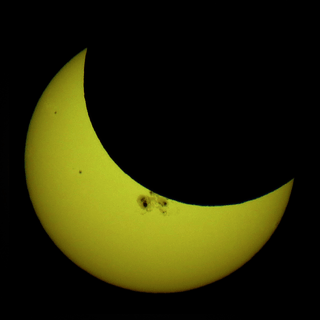Solar eclipse of November 24, 2068
A partial solar eclipse will occur on November 24, 2068. A solar eclipse occurs when the Moon passes between Earth and the Sun, thereby totally or partly obscuring the image of the Sun for a viewer on Earth. A partial solar eclipse occurs in the polar regions of the Earth when the center of the Moon's shadow misses the Earth.
| Solar eclipse of November 24, 2068 | |
|---|---|
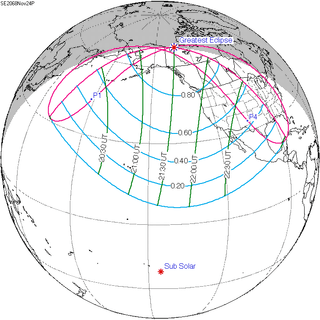 Map | |
| Type of eclipse | |
| Nature | Partial |
| Gamma | 1.0299 |
| Magnitude | 0.9109 |
| Maximum eclipse | |
| Coordinates | 68.5°N 131.1°W |
| Times (UTC) | |
| Greatest eclipse | 21:32:30 |
| References | |
| Saros | 153 (12 of 70) |
| Catalog # (SE5000) | 9661 |
Related eclipses
Solar eclipses 2065–2069
This eclipse is a member of a semester series. An eclipse in a semester series of solar eclipses repeats approximately every 177 days and 4 hours (a semester) at alternating nodes of the Moon's orbit.[1]
| 118 | July 3, 2065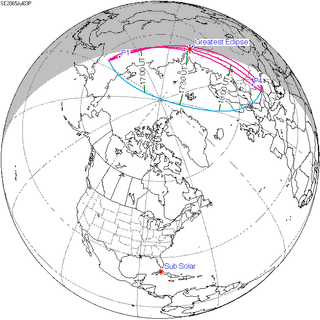 Partial |
123 | December 27, 2065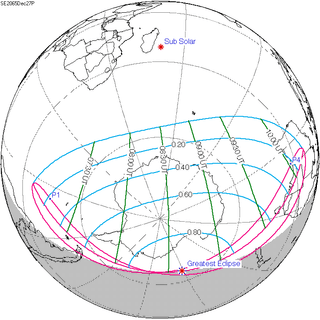 Partial |
| 128 | June 22, 2066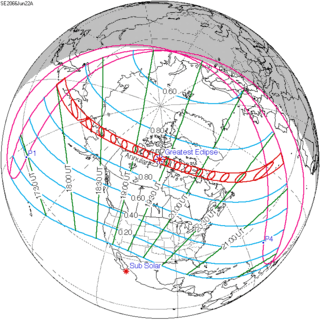 Annular |
133 | December 17, 2066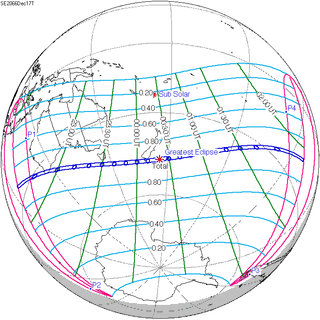 Total |
| 138 | June 11, 2067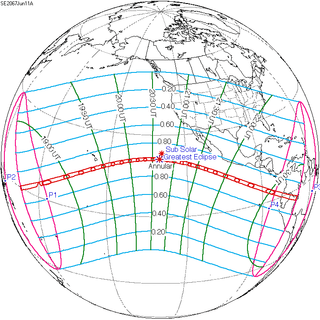 Annular |
143 | December 6, 2067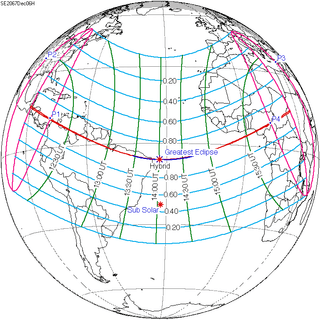 Hybrid |
| 148 | May 31, 2068 Total |
153 | November 24, 2068 Partial |
| 158 | May 20, 2069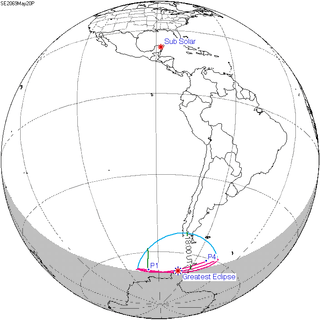 Partial |
Tritos series
This eclipse is a part of a tritos cycle, repeating at alternating nodes every 135 synodic months (≈ 3986.63 days, or 11 years minus 1 month). Their appearance and longitude are irregular due to a lack of synchronization with the anomalistic month (period of perigee), but groupings of 3 tritos cycles (≈ 33 years minus 3 months) come close (≈ 434.044 anomalistic months), so eclipses are similar in these groupings.
| Series members between 1901 and 2100 | |||
|---|---|---|---|
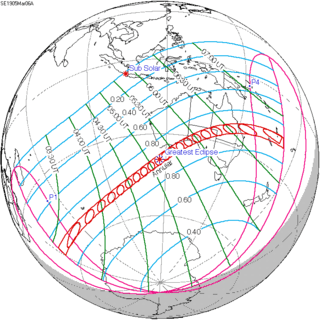 March 6, 1905 (Saros 138) |
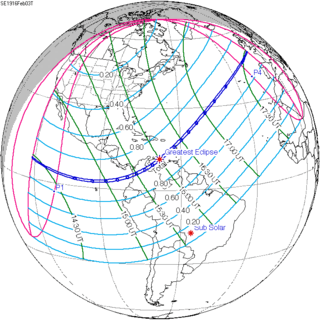 February 3, 1916 (Saros 139) |
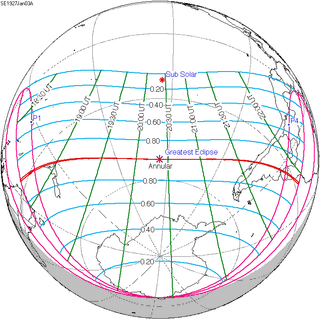 January 3, 1927 (Saros 140) | |
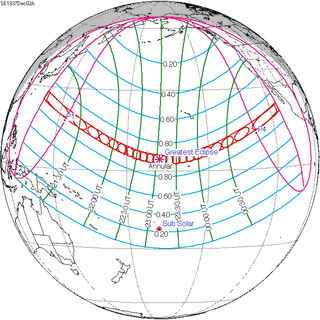 December 2, 1937 (Saros 141) |
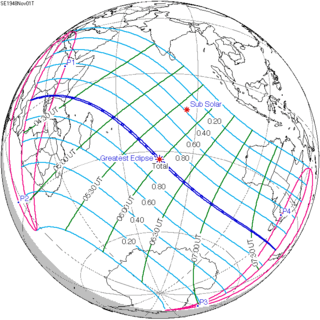 November 1, 1948 (Saros 142) |
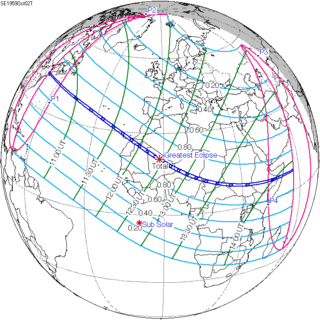 October 2, 1959 (Saros 143) | |
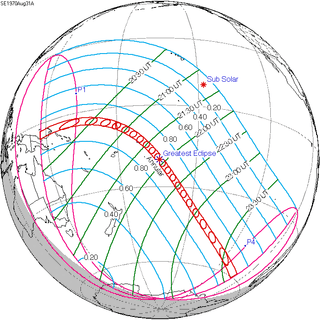 August 31, 1970 (Saros 144) |
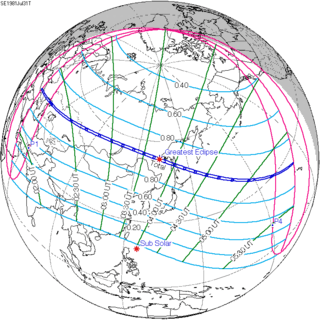 July 31, 1981 (Saros 145) |
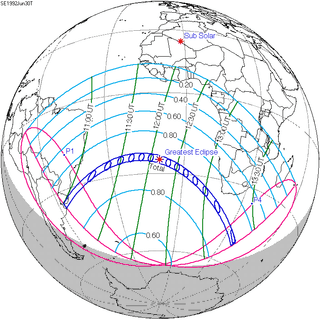 June 30, 1992 (Saros 146) | |
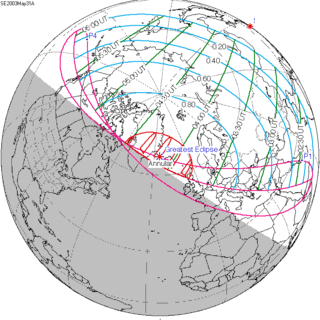 May 31, 2003 (Saros 147) |
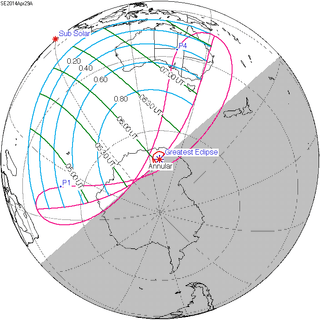 April 29, 2014 (Saros 148) |
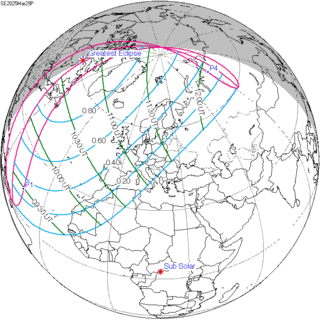 March 29, 2025 (Saros 149) | |
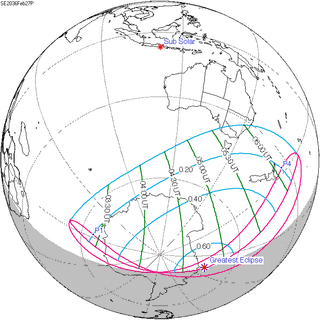 February 27, 2036 (Saros 150) |
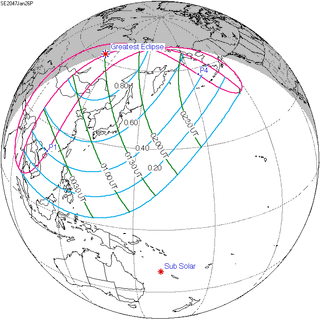 January 26, 2047 (Saros 151) |
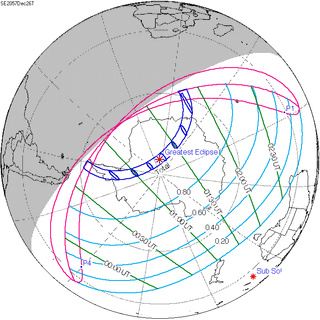 December 26, 2057 (Saros 152) | |
 November 24, 2068 (Saros 153) |
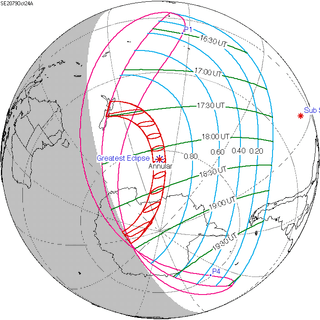 October 24, 2079 (Saros 154) |
 September 23, 2090 (Saros 155) |
|
Metonic series
The metonic series repeats eclipses every 19 years (6939.69 days), lasting about 5 cycles. Eclipses occur in nearly the same calendar date. In addition, the octon subseries repeats 1/5 of that or every 3.8 years (1387.94 days). All eclipses in this table occur at the Moon's ascending node.
| 21 eclipse events, progressing from south to north between July 1, 2000 and July 1, 2076 | ||||
|---|---|---|---|---|
| July 1–2 | April 19–20 | February 5–7 | November 24–25 | September 12–13 |
| 107 | 109 | 111 | 113 | 115 |
| July 1, 1981 | April 20, 1985 | February 6, 1989 | November 24, 1992 | September 12, 1996 |
| 117 | 119 | 121 | 123 | 125 |
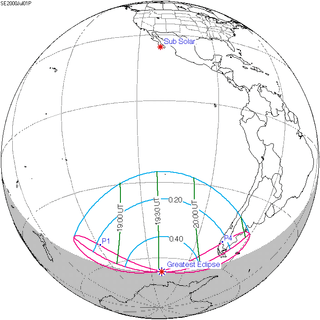 July 1, 2000 |
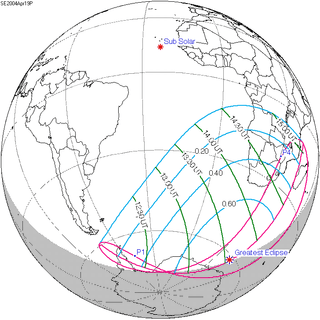 April 19, 2004 |
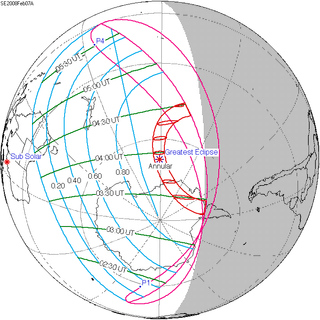 February 7, 2008 |
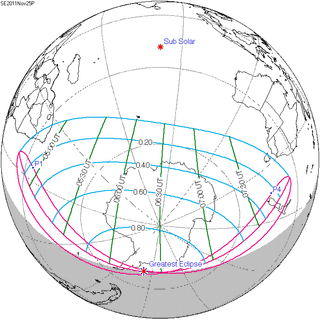 November 25, 2011 |
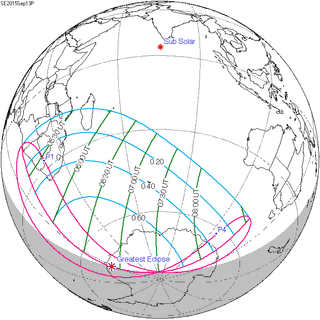 September 13, 2015 |
| 127 | 129 | 131 | 133 | 135 |
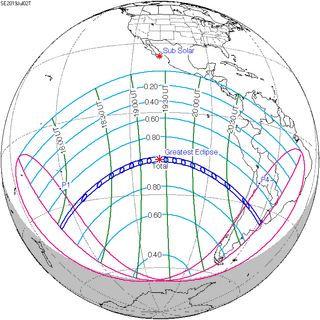 July 2, 2019 |
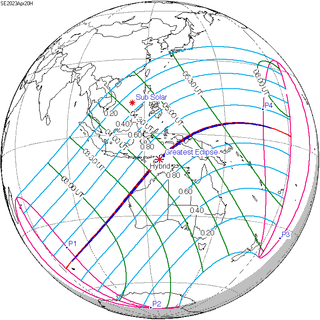 April 20, 2023 |
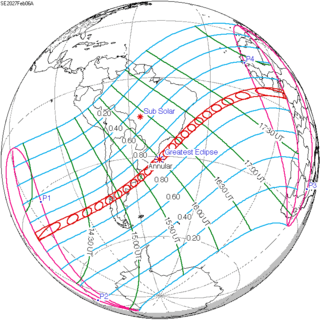 February 6, 2027 |
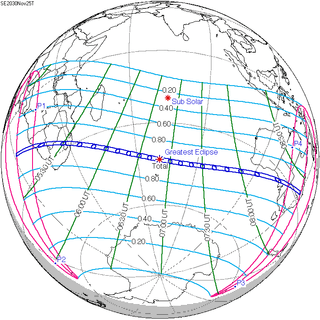 November 25, 2030 |
 September 12, 2034 |
| 137 | 139 | 141 | 143 | 145 |
 July 2, 2038 |
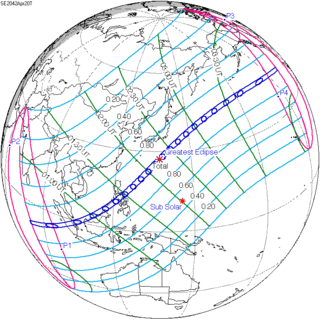 April 20, 2042 |
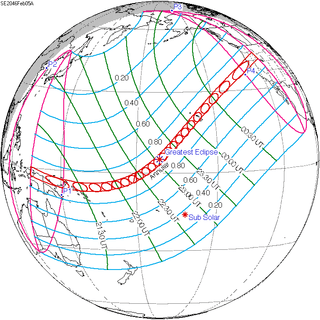 February 5, 2046 |
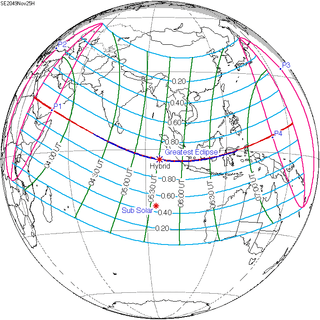 November 25, 2049 |
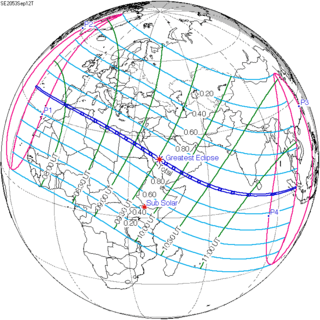 September 12, 2053 |
| 147 | 149 | 151 | 153 | 155 |
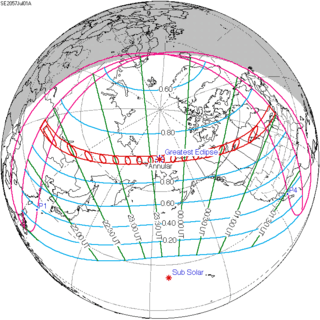 July 1, 2057 |
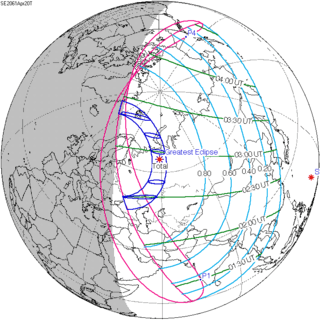 April 20, 2061 |
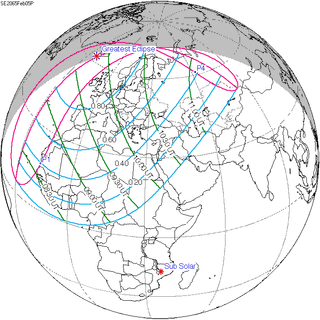 February 5, 2065 |
 November 24, 2068 |
 September 12, 2072 |
| 157 | 159 | 161 | 163 | 165 |
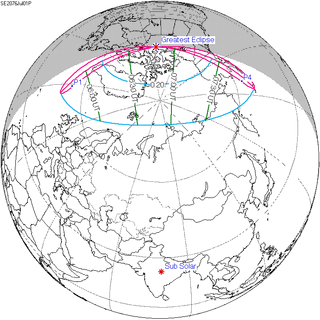 July 1, 2076 |
April 19, 2080 | February 6, 2084 | November 25, 2087 | September 13, 2091 |
References
- van Gent, R.H. "Solar- and Lunar-Eclipse Predictions from Antiquity to the Present". A Catalogue of Eclipse Cycles. Utrecht University. Retrieved 6 October 2018.
External links
- Earth visibility chart and eclipse statistics Eclipse Predictions by Fred Espenak, NASA/GSFC
.jpg)
